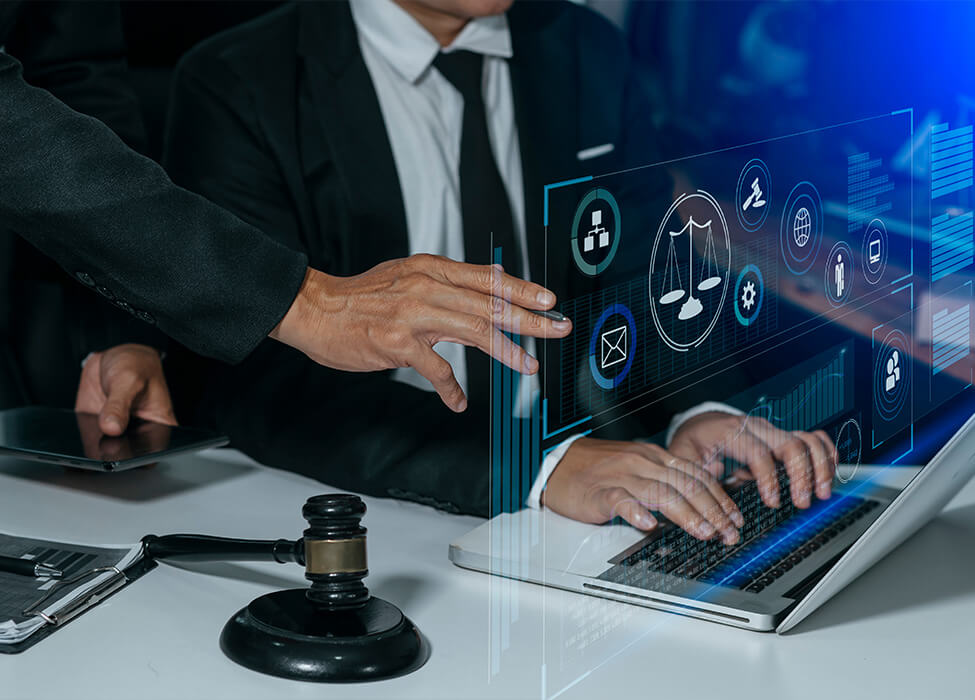AI-Powered Legal Assistants Streamline Complex Case Analysis

Legal research has traditionally been a time-intensive process, requiring attorneys to sift through vast amounts of case law, legal precedents, and regulatory documents. However, in March 2024, AI-powered legal assistants reached new levels of sophistication, enabling law firms and corporate legal teams to automate complex legal analysis, draft documents, and provide real-time legal insights.
With the integration of advanced AI models into legal research tools, firms were leveraging AI-driven assistants to process contracts, summarize rulings, and even predict case outcomes based on historical legal data. These tools were not only accelerating legal workflows but also reducing costs and improving accuracy in decision-making.
How AI Was Transforming Legal Research and Case Analysis
Traditional legal research involved manually reviewing case law, drafting contracts, and analyzing statutes, which could take weeks or even months. AI-powered legal assistants introduced a fundamental shift by automating many of these processes, including:
- Instant case law analysis – AI tools scanned millions of legal documents in seconds, extracting relevant precedents and summarizing key rulings.
- Automated contract review – AI-driven assistants flagged potential risks, inconsistencies, and compliance issues in contracts before finalization.
- AI-powered legal argument generation – AI-assisted tools suggested persuasive arguments based on past case rulings, aiding attorneys in trial preparation.
These capabilities allowed legal professionals to focus on high-value strategic work rather than administrative tasks.
Industries Benefiting from AI-Driven Legal Tools
The adoption of AI-powered legal assistants was expanding across multiple sectors, streamlining legal operations for businesses and law firms alike.
1. AI in Corporate Legal Departments
- AI contract review systems ensured compliance with industry regulations, reducing legal risks for multinational corporations.
- AI-driven document automation streamlined the drafting of employment agreements, NDAs, and compliance reports.
2. AI in Litigation and Law Firms
- AI-assisted legal research tools helped attorneys prepare for court cases more efficiently, reducing hours spent on precedent analysis.
- AI-powered transcription and summarization tools processed courtroom proceedings in real-time, improving trial strategy.
3. AI in Government and Compliance
- Government agencies used AI to analyze policy documents, regulatory changes, and case law to ensure legislative accuracy.
- AI-assisted compliance platforms monitored financial and environmental regulations, reducing audit risks for businesses.
These applications demonstrated that AI was no longer just a research tool—it was actively shaping the way legal professionals worked.
Challenges and Ethical Considerations in AI-Powered Legal Assistance
Despite its efficiency, AI-powered legal tools faced several challenges that needed careful consideration.
1. Ensuring Legal Accuracy and Reliability
- AI-generated legal insights required rigorous validation, as any errors could lead to misinterpretations of the law.
- Attorneys needed to cross-check AI-generated documents to ensure compliance with current legal standards.
2. Bias and Fairness in AI-Powered Legal Decisions
- AI models trained on historical case law could inherit biases from past rulings, potentially reinforcing systemic legal disparities.
- Legal professionals worked on developing fairness-aware AI models to ensure ethical application.
3. Confidentiality and Data Security Risks
- AI-driven legal assistants processed highly sensitive legal documents, raising concerns about data privacy and client confidentiality.
- Law firms required secure, encrypted AI platforms to comply with legal ethics and client privilege standards.
Addressing these issues was crucial for maintaining trust in AI-powered legal tools and ensuring their responsible use.
What’s Next for AI in Legal Technology?
As AI-powered legal assistants continued to evolve, the next generation of advancements was expected to include:
- AI-generated predictive legal analytics – AI models would soon be able to forecast case outcomes with greater accuracy, helping attorneys make strategic decisions.
- Real-time AI legal advisors – AI-powered voice assistants could provide instant legal guidance, allowing clients and professionals to access legal insights on demand.
- AI-powered multilingual legal translation – AI-driven legal assistants would enable real-time translation of contracts, court documents, and legislation across jurisdictions.
These innovations positioned AI as a transformative force in the legal industry, enhancing efficiency while preserving the integrity of legal practice.
A Turning Point for AI in the Legal Sector
The adoption of AI-driven legal assistants in March 2024 marked a significant shift in how legal professionals conducted research, drafted documents, and analyzed cases. What once required days of manual labor could now be completed in minutes with AI-enhanced precision.
However, as AI-powered legal tools became more prevalent, ensuring their accuracy, security, and fairness remained critical challenges. Moving forward, AI’s role in the legal sector would depend on how well it was integrated into existing legal frameworks while maintaining ethical standards.




